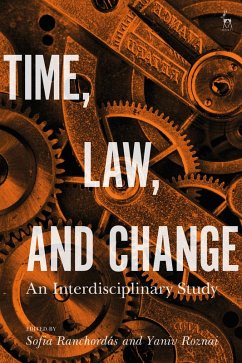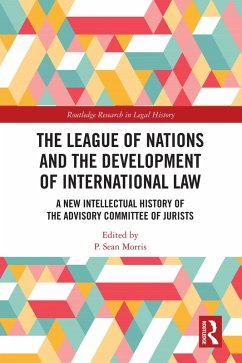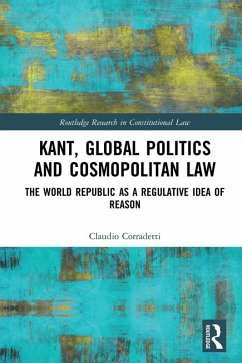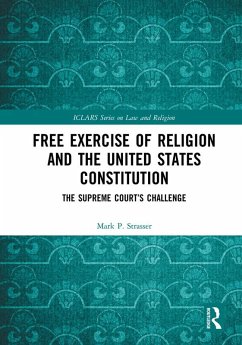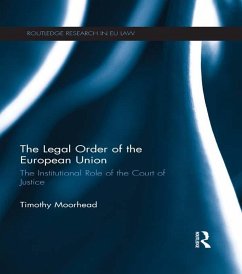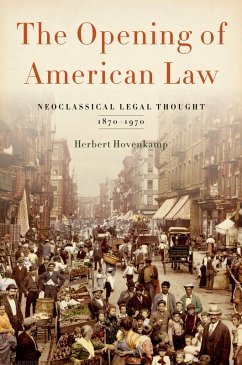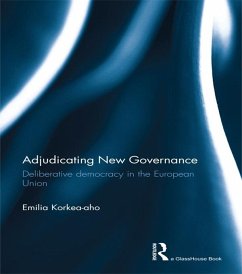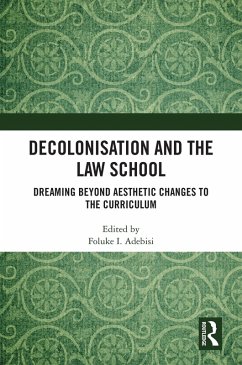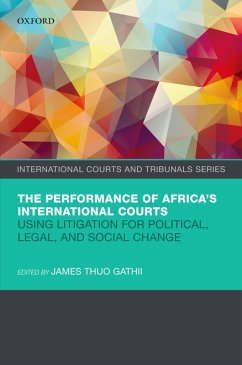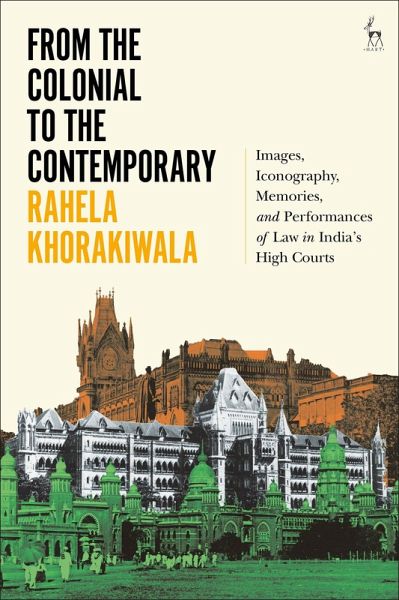
From the Colonial to the Contemporary (eBook, PDF)
Images, Iconography, Memories, and Performances of Law in India's High Courts

PAYBACK Punkte
16 °P sammeln!
From the Colonial to the Contemporary explores the representation of law, images and justice in the first three colonial high courts of India at Calcutta, Bombay and Madras. It is based upon ethnographic research work and data collected from interviews with judges, lawyers, court staff, press reporters and other persons associated with the courts.Observing the courts through the in vivo, in trial and practice, the book asks questions at different registers, including the impact of the architecture of the courts, the contestation around the renaming of the high courts, the debate over the use o...
From the Colonial to the Contemporary explores the representation of law, images and justice in the first three colonial high courts of India at Calcutta, Bombay and Madras. It is based upon ethnographic research work and data collected from interviews with judges, lawyers, court staff, press reporters and other persons associated with the courts.
Observing the courts through the in vivo, in trial and practice, the book asks questions at different registers, including the impact of the architecture of the courts, the contestation around the renaming of the high courts, the debate over the use of English versus regional languages, forms of addressing the court, the dress worn by different court actors, rules on photography, video recording, live telecasting of court proceedings, use of CCTV cameras and the alternatives to courtroom sketching, and the ceremony and ritual that exists in daily court proceedings.
The three colonial high courts studied in this book share a recurring historical tension between the Indian and British notions of justice. This tension is apparent in the semiotics of the legal spaces of these courts and is transmitted through oral history as narrated by those interviewed. The contemporary understandings of these court personnel are therefore seen to have deep historical roots. In this context, the architecture and judicial iconography of the high courts helps to constitute, preserve and reinforce the ambivalent relationship that the court shares with its own contested image.
Observing the courts through the in vivo, in trial and practice, the book asks questions at different registers, including the impact of the architecture of the courts, the contestation around the renaming of the high courts, the debate over the use of English versus regional languages, forms of addressing the court, the dress worn by different court actors, rules on photography, video recording, live telecasting of court proceedings, use of CCTV cameras and the alternatives to courtroom sketching, and the ceremony and ritual that exists in daily court proceedings.
The three colonial high courts studied in this book share a recurring historical tension between the Indian and British notions of justice. This tension is apparent in the semiotics of the legal spaces of these courts and is transmitted through oral history as narrated by those interviewed. The contemporary understandings of these court personnel are therefore seen to have deep historical roots. In this context, the architecture and judicial iconography of the high courts helps to constitute, preserve and reinforce the ambivalent relationship that the court shares with its own contested image.




